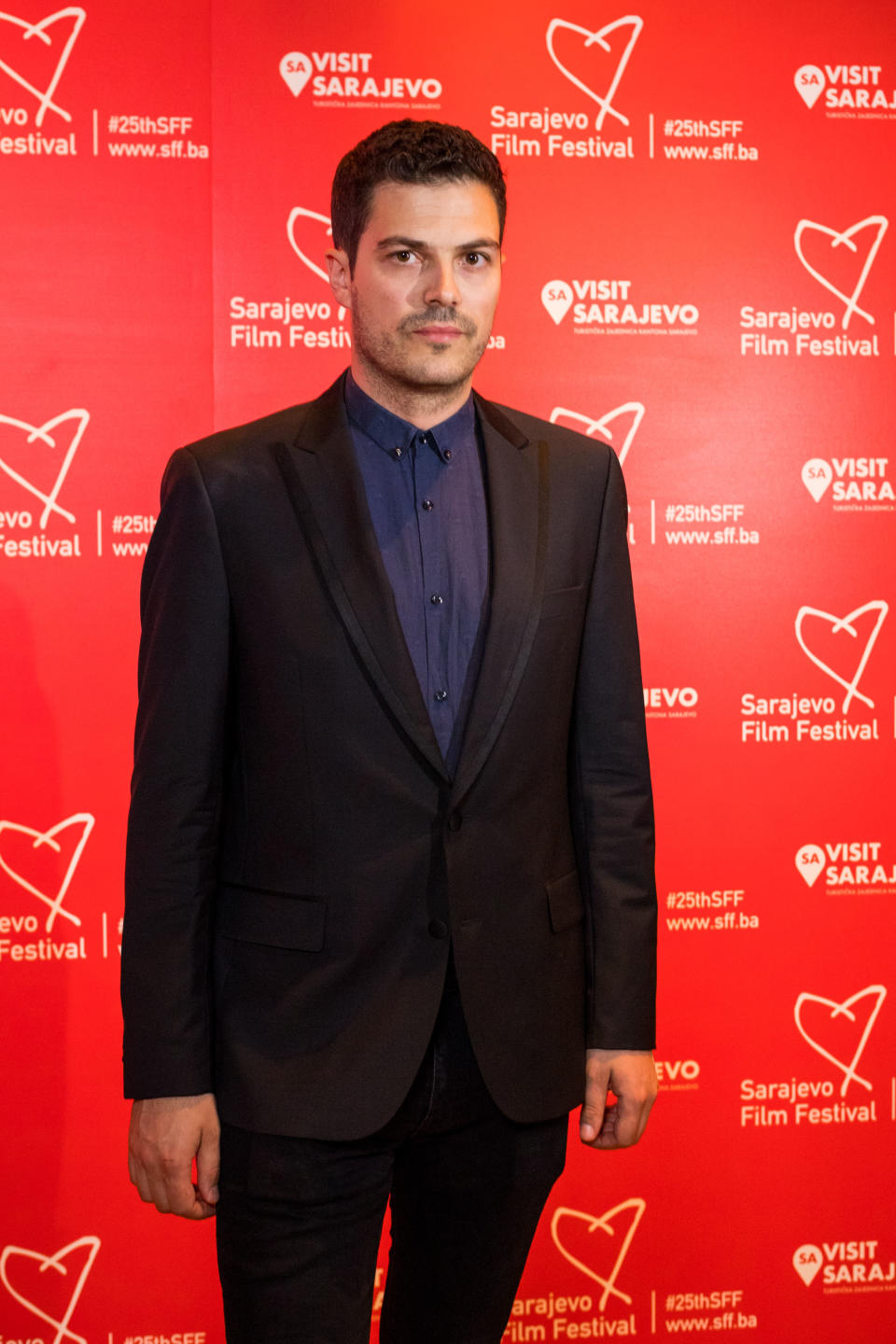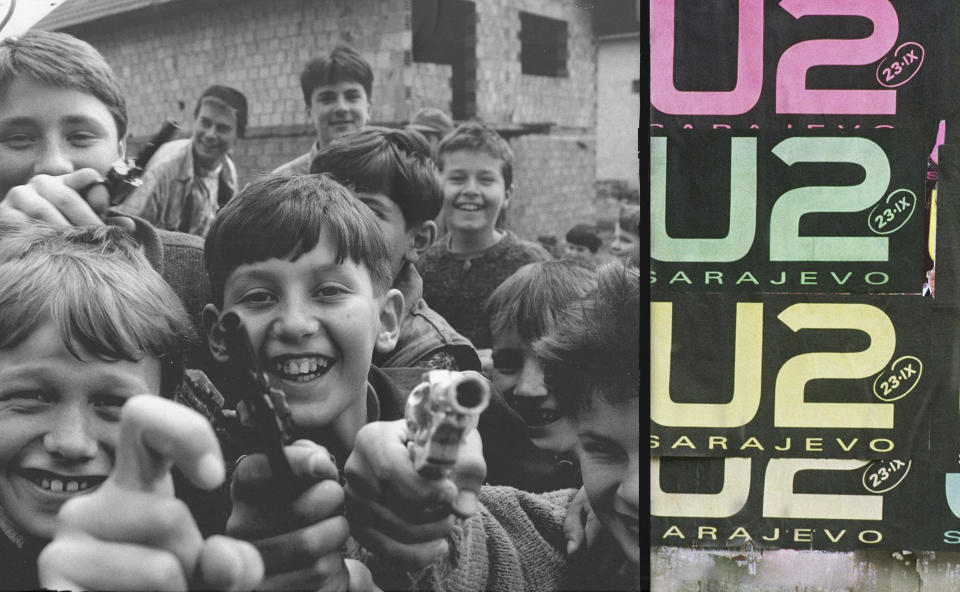Festival In Focus: Sarajevo Continues To Beat The Drum For Southeast European Cinema Amid A “Record Year” Of Submissions
- Oops!Something went wrong.Please try again later.

The Sarajevo Film Festival has long been the biggest showcase of Southeast European cinema and this year’s edition, which unspools on August 11, is on course to be its most reflective and regionally focused edition yet.
“Our manifesto has always been to support young filmmakers and productions from the region while rebuilding an international film industry around it and this year our aim is to strengthen that even further,” says festival director Jovan Marjanović, who is currently in his second year in the role after taking over from festival founder Mirsad Purivatra, who started the event in 1995 during the siege of Sarajevo in the Bosnian War.
More from Deadline
This year’s official selection will see 49 films compete for Heart of Sarajevo awards across its four competition sections – feature, documentary, short and student film – and included in this are 22 world, two international, 22 regional and three national premieres. Films in the official line-up include Cannes Directors’ Fortnight title Blackbird Blackbird Blackberry from director Elene Naveriani, Ukraine title La Palisiada and the world premiere of Greek entry Medium, from director Christina Iaokeimidi.
“I think it was a good year for us because we had a lot of films to choose from,” says Marjanović of the 935 films that were submitted for consideration this year, a 25% uptick from last year’s submissions. “It was probably a bit of a backlog from during the Covid era that has now resulted in a lot of films, but it was a record year in terms of submissions.”
For Marjanović, its more important than ever that Sarajevo remains a festival that beats the drum for its local producers who often don’t get recognition on the global film stage compared to their Western and Central European counterparts. “The region has been producing a lot of films in the last few years, but they haven’t been traveling outside of the region as much unfortunately,” he says, pointing to a lack of Southeastern European films featured in other major film festivals this year. “I don’t think there was a single Romanian film in Cannes this year, which is quite unusual after decades of featuring a sort of staple Romanian film.” Programmers for Sarajevo have included Romanian helmer Tudor Giurgiu’s newest feature film Freedom/Liberate, set against the backdrop of the Romanian Revolution in 1989, in its feature film Competition program.

The line-up, says Marjanović, is reflective of the surge of quality films coming out of the region and he’s cognizant of the fact that local filmmakers are thinking more and more about where their audience is and who their films are for.
“There’s a lot of quality films there but I think there is also a reckoning about who the films are made for,” he says. “As the market is strengthening in the entire region, I think the filmmakers are turning more towards their local audience and that is an interesting move and maybe a step away from the smaller arthouse films that have typically come out of the region. Now, there seems to be more of a focus on audience-driven films.”
A good example of this trend is Serbian director Dragan Bjelogrlić’s period piece Guardians of the Formula (Čuvari Formule) about a well-known accident during the Cold War when a group of young communist scientists get irradicated with a lethal dose of uranium. They are sent to Paris for medical treatment, where a professor is certain they were making a nuclear weapon but proposes the first-ever human bone marrow transplant. The film, which is screening out of competition at the fest, is a timely feature to come out of the region given the recent box office success of Christopher Nolan’s Oppenheimer and its story of the genesis of the atomic bomb.
“Our regional focus is one of our main differentiating points compared to other festivals,” says Marjanović. “So, this year we’ve included a whole new section of eight films that can play to the largest audiences at the festival that are solely devoted to local film. This doesn’t take away from our main Open Air program, which remains the flagship of the festival.”
He adds, “We also shuffled up our international sections a bit this year and I think there is a clearer distinction between the Kinescope section and the Summer Screen section. Summer Screen is now geared towards the best of world cinema in the last eight months while Kinescope is more focused on bold and new cinematic language.”
As ever with Sarajevo, there’s a reflective element to the flourishing festival that was born amid the Bosnian war during a near-four-year siege of Sarajevo, the longest siege of a capital city in the history of modern warfare. The festival is opening on Friday with Nenad Cicin-Sain’s Kiss the Future, a documentary which recounts how U.S. aid worker Bill Carter, who was living in Sarajevo during the siege, enlisted the help of rock band U2 to help raise global awareness of the conflict.

The film, which features Bono, The Edge, Adam Clayton, Bill Clinton and Purivatra himself, is a poignant film to open this year’s festival, despite having previously screened in Berlinale in February.
“When we saw the film in Berlin, we knew it was a no brainer to select it as an opening night film,” says Marjanović. “Everyone in the film is really part of the same circle of people that ran the concerts and the cinema at the time – that was kind of the scene. The film is really dealing with the deep underground scene during the war.”
He adds, “The question really became about whether or not this film would be released on a global platform before our festival but [financier] Fifth Season and the producers [Matt Damon and Ben Affleck’s Pearl Street Films] really made it their job in negotiations with buyers to stress that this film should play at the festival and for that we are really grateful.”
This year, Sarajevo is also paying homage to its origins with this edition marking the 30-year mark since Obala Art Centar, which initiated the festival, first began screening films in the basement of buildings where people who were besieged in city exchanged cigarettes in lieu of tickets to films. The festival is honoring the work and programming of those first days by playing films that played during the war including Basic Instinct, Thelma & Louise and Easy Rider.
Former Edinburgh Film Festival chief Mark Cousins, who was instrumental in helping bring the first edition of the festival of the Sarajevo Film Festival to fruition, is receiving an honorary Heart of Sarajevo award. “Mark actually visited this basement cinema in 1994,” says Marjanović. “He helped with getting the films and organizing the retrospective at the Edinburgh Film Festival.”
Elsewhere, the festival is also honoring director Lynne Ramsay with a lifetime achievement award. Writer-director Charlie Kaufman is being awarded with a Heart of Sarajevo award while the festival will feature a retrospective of Austrian helmer Jessica Hausner. The former’s Adaptation will screen at the Open Air cinema while a host of the latter’s films will play at the fest, including her latest Cannes entry Club Zero, which was co-produced with the Obala Art Centar.
Australian actor Mia Wasikowska is leading the competition jury for the festival this year, something that Marjanović is thrilled about given the ongoing SAG-AFTRA and WGA strike. “There’s been a lot of uncertainty with the strikes and of course we had a lot of discussions with talent and their agents before the strike about what can be done but Mia is coming in a different capacity and not promoting any films. With other guests we were in negotiations with, we had to say, ‘Let’s do it next year.’”
As with last year, Sarajevo will continue to open all of its sections to include Ukraine in its regional content. “That was the idea last year and we’ll just continue doing it now,” says Marjanović. “There’s quite a significant presence from Ukraine and we want them to know that the war has not been forgotten.”
The 29th edition of the Sarajevo Film Festival takes place August 11-18, 2023.
Best of Deadline
SAG-AFTRA Interim Agreements: List Of Movies And Series Granted Waivers
2023 Premiere Dates For New & Returning Series On Broadcast, Cable & Streaming
Hollywood & Media Deaths In 2023: Photo Gallery & Obituaries
Sign up for Deadline's Newsletter. For the latest news, follow us on Facebook, Twitter, and Instagram.

